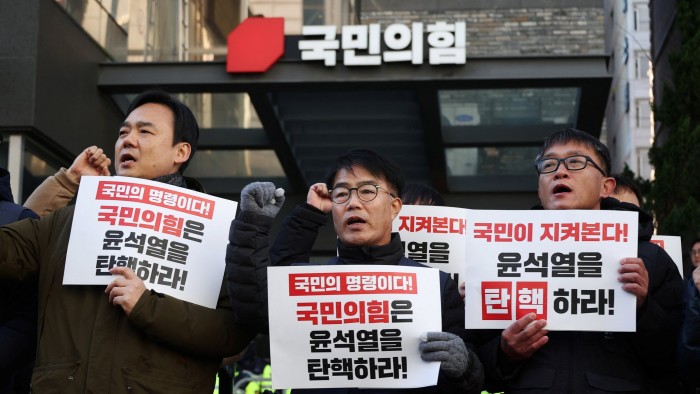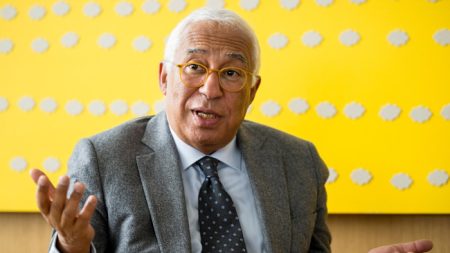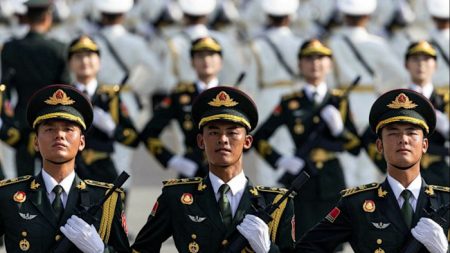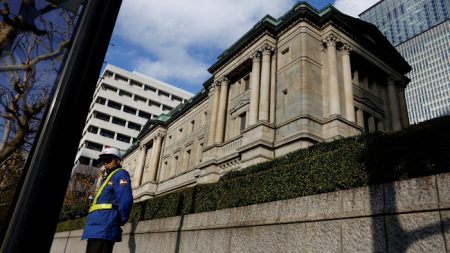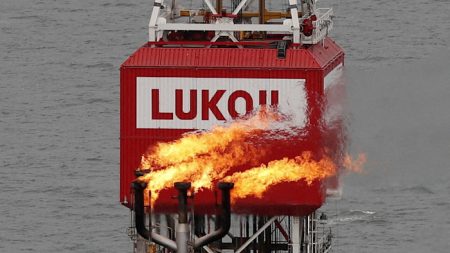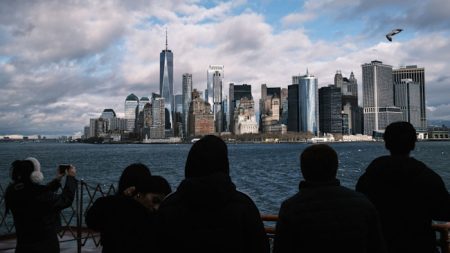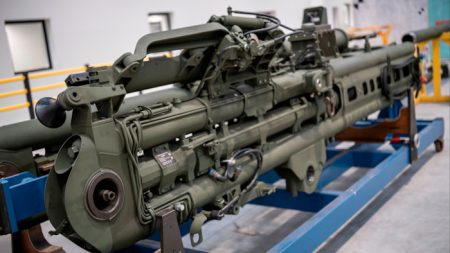Unlock the Editor’s Digest for free
Roula Khalaf, Editor of the FT, selects her favourite stories in this weekly newsletter.
The South Korean army general who was put in charge of a sudden declaration of martial law told parliament on Thursday that he had only learnt about the move when President Yoon Suk Yeol announced it on national television.
Park Ahn-soo, South Korea’s army general and martial law commander, was one of a number of defence officials questioned by lawmakers as they started efforts to impeach the president and investigate the shortlived imposition of martial law. The emergency decree was issued in Park’s name.
“I found out about the martial law declaration watching Yoon’s press conference,” General Park said, adding that defence minister Kim Yong-hyun “orchestrated the military moves” after the president’s declaration.
Kim Sun-ho, the vice-defence minister, also said he was informed of the president’s plans only after Yoon’s television statement. The officials blamed defence minister Kim Yong-hyun for the decision to dispatch troops.
Yoon on Thursday accepted the resignation of the defence minister, who said he was responsible for the order for soldiers to enact martial law.
The president’s decree on Tuesday, and his subsequent climbdown, left the country in political turmoil and sparked calls for the 63-year-old former prosecutor to resign or face impeachment.
Opposition lawmakers, who have a parliamentary majority, have submitted an impeachment motion to the National Assembly and sought a Saturday vote.
However Han Dong-hoon, the leader of Yoon’s ruling People Power party, said he opposed impeachment. Eight PPP members would probably have to vote in favour of impeachment for a motion to succeed.
“I’ll make efforts to block the impeachment motion in order to prevent any damage to the public and our supporters given the chaos it could bring,” said Han.
Opposition leaders have conceded they face an uphill battle convincing ruling party lawmakers to cross the political divide and support impeachment. But they also argued that Yoon violated the constitution and other laws in his failed attempt to impose emergency rule.
“He tried to exercise absolute power as the absolute ruler by controlling all national institutions, including constitutional authority,” said Lee Jae-myung, the Democratic party leader who narrowly lost the 2022 presidential election to Yoon.
“In this context, Yoon must be impeached. [Ruling party lawmakers] should not become a force aligned with treason.”
South Korea’s presidential office on Thursday described the martial law declaration as a “warning” to opposition parties — rather than a serious long-term effort to control the country through the armed forces — and said Yoon was not expected to make a public apology.
Separately on Thursday, South Korean police opened an investigation into whether Yoon’s actions amounted to treason, state news agency Yonhap reported.
Thousands of South Koreans have braved sub-zero temperatures over the past two nights, in the capital and other cities, to call for Yoon to stand down. Further protests and industrial action are planned across the country ahead of Saturday’s vote.
“Some of the ruling party lawmakers will vote for his impeachment for their own political survival,” said Choi Young-taek, a 57-year-old insurance worker at a protest on Wednesday night. “Otherwise, they will all be destroyed. If he doesn’t get impeached, all Koreans will take to the streets to protest.”
Kim Hana, a 42-year-old pastor, said “everyone, regardless of their age and gender” believed it was crucial for the future of South Korea for Yoon to be removed from office. “I’ll keep attending these rallies because we have to unite to put pressure on parliament,” she added.
John Delury, an expert on Asian politics and visiting professor at Luiss University in Rome, said there was still a risk of violence as it was unclear how the country’s security agencies would respond to public anger and further protests ahead of the impeachment vote.
“That’s really critical in how the next few days play out, assuming that there are large-scale protests and demonstrations,” he said.
Read the full article here





